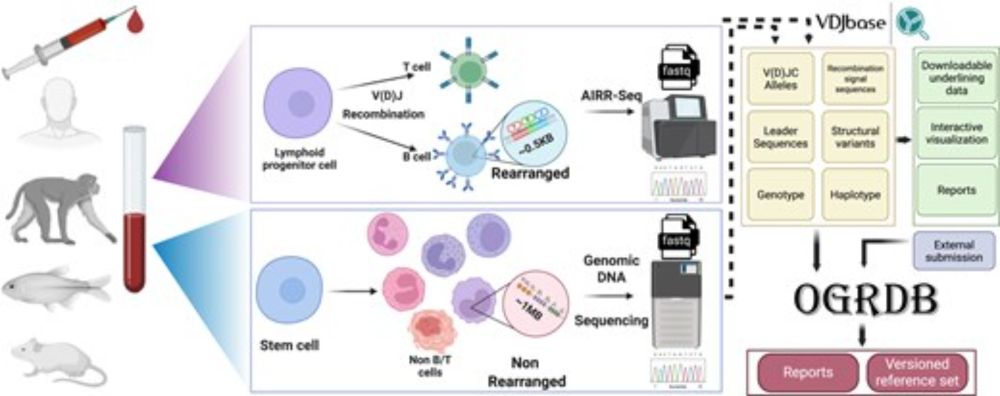
www.biorxiv.org/content/10.1...
#scRNAseq #immunology
Putative target antigens of the stereotyped intrathecal B cell response in multiple sclerosis
www.biorxiv.org/content/10.6...

Putative target antigens of the stereotyped intrathecal B cell response in multiple sclerosis
www.biorxiv.org/content/10.6...

Don't hesitate to get in touch if you have any questions. Link:
www.nature.com/naturecareer...

Don't hesitate to get in touch if you have any questions. Link:
www.nature.com/naturecareer...
How else will germline variation impact the expressed repertoire? Can't wait to see!
Thanks to awesome collabs:
@williamlees.bsky.social @guryaari.bsky.social @ayeletperes.bsky.social
How else will germline variation impact the expressed repertoire? Can't wait to see!
Thanks to awesome collabs:
@williamlees.bsky.social @guryaari.bsky.social @ayeletperes.bsky.social
LET'S CHANGE THE WAY WE UTILIZE IG/TR GENOMIC AND REPERTOIRE DATA! @guryaari.bsky.social @williamlees.bsky.social @ayeletperes.bsky.social
academic.oup.com/nar/advance-...

LET'S CHANGE THE WAY WE UTILIZE IG/TR GENOMIC AND REPERTOIRE DATA! @guryaari.bsky.social @williamlees.bsky.social @ayeletperes.bsky.social
academic.oup.com/nar/advance-...
@williamlees.bsky.social @guryaari.bsky.social @ayeletperes.bsky.social
www.cell.com/cell-genomic...

@williamlees.bsky.social @guryaari.bsky.social @ayeletperes.bsky.social
www.cell.com/cell-genomic...
Can you predict immune state labels from adaptive immune receptor repertoires?
💰 $10,000 prize pool!
🗓️ Launches Nov 5 on @kaggle.com
More Info: uio-bmi.github.io/adaptive_imm...

Can you predict immune state labels from adaptive immune receptor repertoires?
💰 $10,000 prize pool!
🗓️ Launches Nov 5 on @kaggle.com
More Info: uio-bmi.github.io/adaptive_imm...

www.biorxiv.org/content/10.1...

www.biorxiv.org/content/10.1...
www.biorxiv.org/content/10.1...
#scRNAseq #immunology

www.biorxiv.org/content/10.1...
#scRNAseq #immunology
www.biorxiv.org/content/10.1...
www.biorxiv.org/content/10.1...

Way to go Eric @e-engelbrecht1.bsky.social !!!!
www.biorxiv.org/content/10.1...

Way to go Eric @e-engelbrecht1.bsky.social !!!!
www.biorxiv.org/content/10.1...
lds.easycruit.com/vacancy/3490...

lds.easycruit.com/vacancy/3490...
www.biorxiv.org/content/10.1...

www.biorxiv.org/content/10.1...
www.biorxiv.org/content/10.1...

www.biorxiv.org/content/10.1...
www.biorxiv.org/content/10.1...
www.biorxiv.org/content/10.1...

